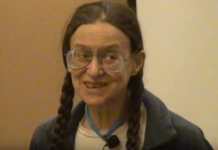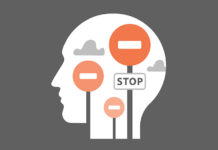Insane Medicine, Chapter 8: Treatment Traps and How to Get Out of Them (Part...
Sami Timimi provides a discussion of the ways medication may be helpful for some, and advice and information on discontinuing psychiatric drugs.
Nitrous Oxide for Depression and Other Hazards of Modern Psychiatry
This week, MIA featured a news item regarding a recent “proof of concept” study conducted at Washington University of St. Louis to investigate whether nitrous oxide, commonly known as laughing gas, was effective in reducing symptoms of depression. Why is this a problem?
The Scientism of Autism
Autism is now simply assumed to represent a real, tangible, identifiable ‘thing.’ But no one is asking the obvious question: On what evidential basis can you conclude that autism represents a natural category that can be differentiated from other natural categories? According to the real science, autism should be seen as a fact of culture, not a fact of nature.
Improving Therapy Outcomes: The Case for Deliberate Practice
With Deliberate Practice, I doubled the number of sessions I had with my clients, cut the amount of unplanned dropouts in half, and improved the number who experienced clinical change.
New NICE Guidelines for ECT Are Dangerously Inadequate, Say 50 Patients and Professionals
An open letter from patients, psychiatrists, and professors calls on NICE to rewrite the new ECT guidelines to avoid putting patients’ safety at risk.
Does Pharma Need the Entrepreneur?
Capitalists don’t discover new medicine; they invest in it. The incentive to do so, as everyone will admit, is to return a profit. Most would also agree that this profit shouldn’t be "too large," but enough to encourage adequate investment into new treatments. However, the idea that this is a well-functioning system, and indeed the best way of producing medicine, is a myth.
Letters from the Front Lines
Dear Bob--
I've had a couple of remarkable conversations, not with my own patients, but with friends and acquaintances asking me for advice. Each example...
Saving Psychotherapy
Psychotherapy could, and really ought to, promote itself as the best investigative tool around for understanding emotional health and problems in living. That would change its footing, putting it on much more solid ground. I’m calling this redefined version of psychotherapy multi-lens therapy, to put the emphasis on where it ought to have been put all along: investigating.
National Institute of Mental Health Violates Law on Posting Clinical Trial Results
Last year, over twenty major institutions worldwide jointly committed to posting the results of all their clinical trials within a 12 month time frame. NIMH’s frequent failure to do so is especially concerning because evidence distortion appears to be remarkably widespread in journal articles discussing trials of psychiatric drugs.
Helping Children With Angry Outbursts
Finnish psychiatrist Ben Furman reviews various non-drug therapies for children with aggressive outbursts of anger, including the Kids' Skills approach that he and social psychologist Tapani Ahola developed. These approaches focus on helping children come up with their own ideas for overcoming their problems with the help of family and friends.
Mental Health Survival Kit, Chapter 3: Psychotherapy: The Human Approach to Emotional Pain
Through the process of healing—whether assisted by psychotherapy or not—we learn something important that can be useful if we get in trouble again.
In Memory of Julie Greene
With deep regret, Mad in America announces another loss in our contributor community. Julie C. Greene, writer and antipsychiatry advocate, lost her battle with kidney disease on November 29 at her home in Beaver Falls, Pennsylvania. Julie had been an MIA blogger since 2014, including several pieces on the dangers of lithium.
The Future of Mental Health Interview Series, Part III
The Future of Mental Health interview series continues with interviews this past week with Claudia Gold on The Silenced Child, Robert Stolorow on emotional trauma and psychoanalysis, Gayle Flanigan on Rose Hill Center, Robert Salvit on Kabbalah and spiritual healing, Susan Raeburn on group psychotherapy, Robert Whitaker on Mad in America, and Isabel Clarke on psychosis and spiritual experiences.
Trauma Blocks the Frontal Lobes – “Verbal Physiotherapy” Can Unblock Them
Trauma makes the speech centers of the brain shut down. This is why talking about abuse is so difficult: the words are blocked. If you reclassify trauma effects as trauma-strokes, and you adapt physiotherapy to take this clinical evidence into account, then you come up with Verbal Physiotherapy.
60 Minutes: Stop the Lies!
As the 60 Minutes episode featuring E. Fuller Torrey comes to air, I feel moved to ask: when will the lies that robbed me of my late teenage years and young adulthood stop? When will the false notion that professionals can predict who - and who will not - be violent give way to the reality - proven over and again - that they are no better able than chance to make such predictions? When will we see the reality that forced treatment is actually, statistically, more harmful than helpful? It certainly was not helpful for me.
The Chemical Imbalance Theory: Still Being Promoted
On November 28, Psychiatric Times published an article titled Psychiatric Diagnosis and Treatment of Somatizing Neuropsychiatric Disorders. It addresses the phenomenology, epidemiology, and developmental course of the so-called somatization disorders. Under the heading "Postulated pathogenic influences," the authors present working hypotheses from psychoanalytic theory, learning theory, behavior analysis, social-affective neuroscience, autoimmune sensitization, and theories of dissociation. But they advocate a discussion of the role of medications in "normalizing brain neurotransmitter function."
Envisioning Psychiatric Drug Freedom
Psychiatric meds can shut down the emotions and consciousness enough to make it possible to tolerate dynamics that would inspire rage or surges of empowered activity without the meds. It can be helpful to look closely at these blocks and start to create a map to freedom, understanding that it is a complex process that involves not only the physiology of the body of the individual taking meds, but the architecture of the social system around that person.
Is Australia’s Psychiatric System Redeemable?
We have reached the point where we have to ask: Is psychiatry doing anything useful for society, or has it degenerated to an insatiable, high-cost and self-sustaining rentier gorging on the public purse? The Australian Productivity Commission is holding an enquiry into mental health; it is to be hoped that this will assist in the process of uncovering the truth.
Everything About Us Without Us
Between 1883-1955, there was little attention given to the value and contributions of those who were “patients” at the Oregon State Insane Asylum.
Schizophrenia Twin Research as Reported in The Gene: An Intimate History — Getting the...
In his 2016 book The Gene: An Intimate History, cancer physician and researcher Siddhartha Mukherjee chronicled the initial idea of the gene, taking readers through the history of genetics up to the current “post-genome” period by interweaving science, social history, and his own personal narrative. In the process he documented some of the crimes of the eugenics movement and the monstrous atrocities committed by German National Socialism in the name of eugenics and biology, while noting the Nazi’s promotion of twin research. He also criticized aspects of intelligence testing and genetic theories of racial inferiority based on IQ tests. At the same time, Mukherjee supported and promoted many contemporary behavioral genetics positions.
The Continuing Education Course on Withdrawal from Psychiatric Drugs is Here!
A full picture of the seven webinars that comprise our upcoming psychiatric withdrawal course, with presenters including Sandra Steingard, Peter Breggin, Kelly Brogan, Carina Hakansson, Will Hall and a panel of survivors. The course begins on October 24th and slots are filling fast!
Centering Lived Experience
Lately, after a number of discussions, we have been changing our practices around the issue of labels. No longer do we give a diagnosis at presentations. We place the young person’s story, as told to us, front and center. People listening rarely ask, “What is their diagnosis?” now that lived experiences are central. We are providing a sense of their struggles. We are trying.
Welcome to Planet ADHD: A Farce to be Reckoned With
Hello and welcome to my inaugural blog! It's an honor to join the insightful and talented team of writers at Mad in America. This exciting opportunity is the perfect complement to my efforts to help kids worldwide live childhood drug-free.
Why the ‘Psychological Injury Model’ Will Ultimately Triumph
The Psychological Injury model will triumph, not just because literally thousands of studies show how trauma and stressful life events result in mental health problems, but because at our core, we know it is true. People hurt people, and people heal people. This cracks the intellectual foundation of psychopharmacology.
Living Mindfully with Voices
I hope this will be of help to people who hear voices and their friends and supporters. I also hope it will be helpful to the voices which are parts of many people's lives. Many voices I have come across and the people that hear them are convinced that their voices are spiritual in nature. I take an agnostic position on this, and therefore endeavour to respect different spiritual understandings. My intention is not to explain all voices psychologically but to help people make peace with their voices so they can get on with their lives.

























